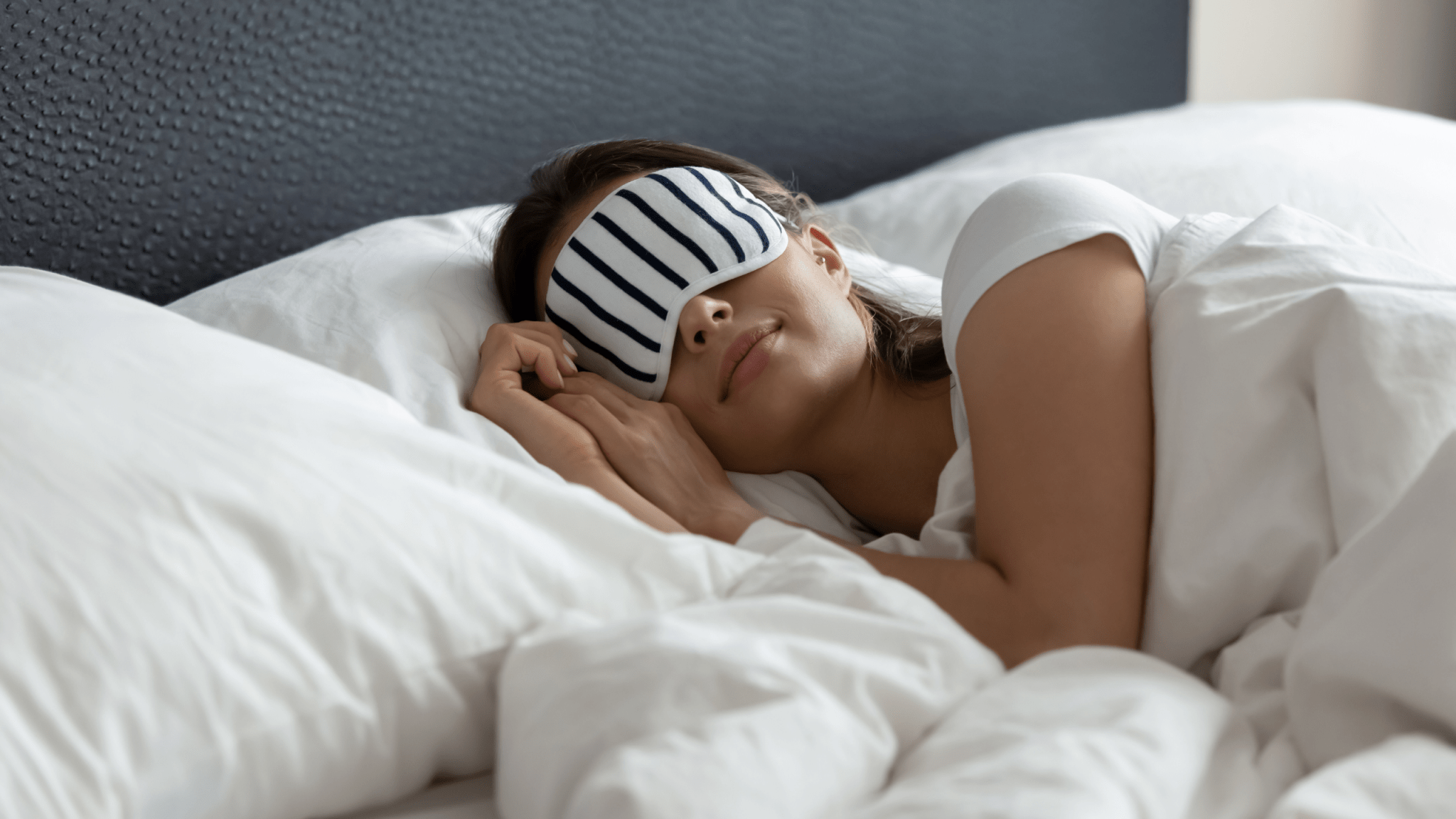
The Dilemma:
Sleeplessness can be a problem common to humans. Unhealthy sleep patterns can be driven by modern day stress, anxiety, depression, or pain. Poor sleep habits can interfere with cognitive function and mood. A lack of sleep is stressful. It has the potential to compound an already difficult situation especially if anxiety is involved. Poor sleep quality can quickly spiral into an unhealthy downward cycle.
Allopathic practitioners often look to pharmaceuticals to help one cope with sporadic or chronic insomnia. Essential oils have the potential to offer an alternative way of finding relief. Specific oils are associated with helping the body to relax and fall asleep. Selecting your own essential oils is empowering and gives you control over your personal healing.
Essential Oils Working as Hypnotics. How Does This All Work:
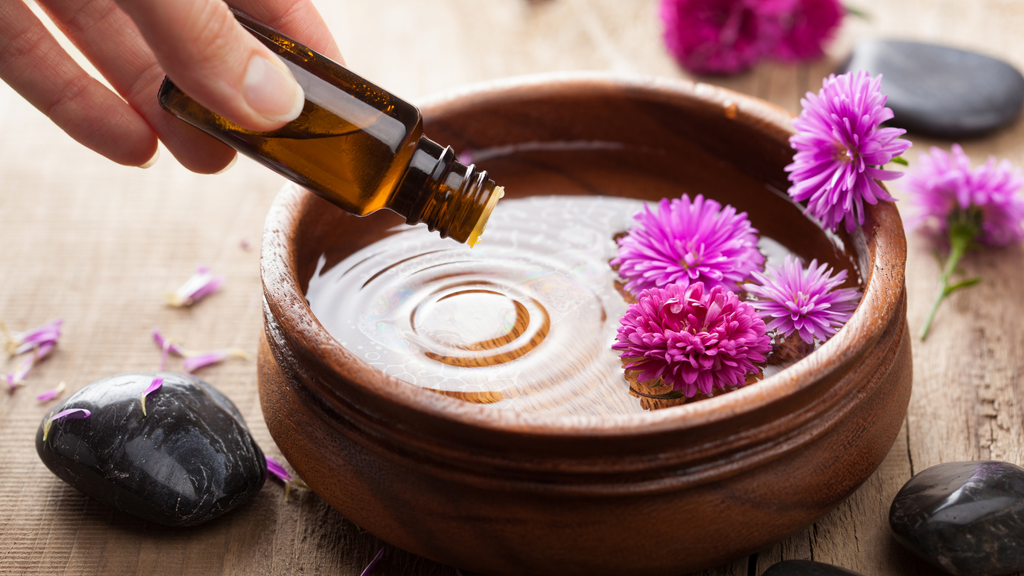
A person experiencing stress due to challenges in their day-to-day activities, is prone to being tense. This can manifest as muscle tension, or mental anxiety. The nervous system responds to what the mind is concentrating on.
The hyper excited central nervous system influences the limbic system of the brain. As calming
essential oils are inhaled, the limbic area responds to the scent by potentially shortening the time it takes to fall asleep. Essential oils can also prolong the time the individual stays in a productive sleep mode.
A good night’s sleep allows the individual to productively go about their daily activities. A well-rested individual shows motivated determination in achieving their daily goals. Good sleep habits allow an individual to maintain focus and clarity of intention.
Ways Essential Oils Can Be Used to Offer Relief:
Essential oils can be added to a warm bath prior to going to bed. The warmth of the water and the quiet of the bathing ritual itself can be sleep inducing. A few drops of quality oils added to the warm waters will allow the scent to lightly fill a small bathroom.
Epsom salt is high in magnesium and magnesium is associated with antispasmodic activity. If you add 8-10 essential oil drops directly to a cup of Epsom salts, it is easy to imagine how this would be a simple way to incorporate essential oils into a nighttime ritual. The combination of a natural mineral, warm waters, and a scent known to promote relaxation, is a winning recipe for quieting an overactive mind. Try lighting a little tea candle for a truly spa like experience.
Hydrosols or essential oil sprays can be misted on to the bed linens. The scent of the oils is prolonged by being captured in the linen fibers. Using a prepared hydrosol spares you doing any mixing. Keeping the spray bottle next to your bed makes this evening ritual simple and easy.
A personal inhaler can be used to direct the scent directly into the nasal passages for a very rapid stimulation of the brain. Merely uncapping a bottle of an oil associated with assisting in relaxation, is as simple as it gets.
Essential oils can be diffused throughout the entire bedroom immediately prior to going to bed. This invisible scent cloud is easy to make with a lovely diffusor. Within a few moments of turning the diffusor on, the bedroom will be gently enveloped in a healing cocoon of therapeutic scent.
Essential oils can be massaged into the skin, as well. The variety of ways oils can be employed for this task allows the individual to find the best and easiest method for themselves.
One method involves adding a few drops of essential oil to magnesium oil. Rubbing essential oils into the skin this way will have a very relaxing impact for the individual. Magnesium and essential oils work well when applied topically to quickly relax tight muscles and relax the spirit.
So What Oils are Best Suited to Insomnia?

Certainly, lavender comes to mind with relaxation and bedtime rituals. Often it is the only essential oil that comes to mind when the topic is mentioned, however, there are so many varieties of this plant to choose from. There is wild lavender (both high and low altitude) that is considered the top of the heap, in that it has a high ester content. This high ester content is what gives lavender the notoriety for been a hypnotic or sleep inducer. The very soft powdery scent is associated with a superior high-quality oil.
The joy of distilling your own plant material with your CopperPro equipment means you can produce a high-quality product. Often commercial lavender oils are adulterated, and lavandin oil is used to increase oil yields.
Lavandin is a hybrid variety from the mingling of Lavandula angustifolia and Lavandula latifolia. This hybrid variety yields a large quantity of oil, so it is commercially very viable to produce it. The unsuspecting consumer may purchase one of these economically priced oils and expect a desired sleep-inducing effect, only to be disappointed that the “oil did not work”. If you are distilling your own plants, you are not working with unadulterated oils.
If you are helping someone purchase a quality lavender oil, you would want to see esters in the 40%—55% range. Esters are associated with eliciting the sleep quality you are looking for.
Lavandin, on the other hand, is much lower in ester concentration (about 25%) and has a higher concentration of camphor. Sometimes this is referred to as Dutch Lavender. It may not be as valuable for offering you quality sleep assistance.
If you are growing your own lavender, you would want to avoid clonal lavender because you are looking for a quality therapeutic benefit. Clonal lavender plants are sterile, and they are very similar to one another genetically as they are cloned from one mother plant. Genetic diversity increases bioactivity, which of course would be desirable for your needs in this case.
Ideally you are looking for the variety Lavandula angustifolia. This is the variety that will yield a quality essential oil. It is associated with the therapeutic range of esters for aiding in insomnia.
Marjoram is another plant you might want to consider if you are having trouble falling asleep or staying asleep. This common garden herb is associated with reducing nervous tension and anxiety. It is noted for lowering hypertonic conditions in the body. It works to lower tension in the muscular system resulting in a relaxation response and is considered a strong cerebral sedative. This essential oil will help to sooth an agitated and restless individual who is tossing and turning and just can’t seem to settle down and fall asleep.
Sometimes this oil is adulterated and again, by distilling your own oils you avoid this situation. This oil has analgesic properties, so if the individual is dealing with pain that is inhibiting or preventing sleep, then this oil would be important to consider.
With marjoram it is important to know that the monoterpenols, as well as the ester content are responsible for the therapeutic effect of inducing sleep. Often sleep is inhibited by an emotional component that is difficult to suppress. Marjoram helps to allow for this release of stuck or mired emotions and the subsequent anxiety of not being able to release unwanted thoughts.
Clary sage is another example of a hypnotic. It is a nervous system relaxer and an analgesic as well. This oil again would be a good example of something to use if pain, tension, and spasms are delaying or preventing sleep. This oil might be adulterated if you were to buy it, and lavender or lavandin might be used to stretch it. Clary sage is something that is calming to the nonstop spinning thoughts that often are associated with not being able to fall asleep.
Either Roman or German chamomile would also be essential oils to consider if sleep is alluding you. Both help to settle stress conditions. German chamomile is a systemic relaxant. Rashes and shooting pain associated with nerve dysfunction would respond well to this essential oil.
Roman chamomile is considered a strong hypnotic and muscle relaxant. Roman chamomile is an excellent choice if arthritis pain is keeping you from getting a good night’s sleep. Acute stress related situations respond very well to Roman chamomile. The chamomiles might be your friend if you are having trouble falling asleep.
Blue Tansy is an essential oil associated for use with those who are restless in sleep and prone to nightmares. This oil is used if the individual is emotionally irritable and frustrated. Often this individual has a strong will and a very rigid and inflexible personality. This oil relaxes the entire nervous and cardiac system. It might be considered if the blood pressure is consistently high. It is a strong anti-inflammatory.
Blue is associated with cooling. This oil works in precisely that way to cool down the nervous system and release tension in the muscles so that peaceful sleep can prevail to balance the body.
Manderin or Citrus reticulata is excellent for nervous tension. Tension often can keep an individual from sleeping. This essential oil is a nervous system sedative and a cardiac relaxer. If the individual has stress related conditions that directly impact the functioning of their heart, and this is keeping them from being able to relax and fall asleep, mandarin essential oil may be very helpful.
Heart palpitations would be considered something that this oil might be helpful with. Anxious thoughts can cause the heart to beat irregularly. Citrus plants have long been associated with lighthearted feelings. This oil then might help someone struggling with morbid and depressing thoughts that are inhibiting the natural sleep cycle.
Can I Mix My Own Combination of These Oils for a Bespoke Formula?

Combining two or more of these oils to meet your needs is what essential oil formulation is all about. With you CopperPro distiller you can be the creator and the receiver of extraordinary gifts from the plant kingdom. Knowing exactly what you are trying to overcome with an individual’s health challenge is key. Is arthritis pain causing a person to lose hope and perspective? Is worry keeping them awake at night and is the cumulative impact of the arthritis and lack of sleep causing further undue anxiety? Combine your oils and take your practice to the next level.
Sleep has been called the great balancer for the body. Without the peace of withdrawal from the active mind, the body cannot adequately restore itself. Use essential oils to unlock your potential for an excellent night’s sleep tonight and greet the morning with positivity and gratitude.
How to Make A Simple Spray for Linens

Using a glass spray bottle will mean that your essential oils do not interact with the container materials. Glass is an inert substance. It is also very easy to repurpose. A 4-ounce container would be ideal, as essential oil sprays have a short life span of a few weeks at most. Making your spray in small quantities is smart and economical.
To make a sleep spray you would first determine your needs. Are you dealing with nerve pain that is keeping you awake, or are you struggling with an overactive mind, bent on worry and constant chatter? Would one of the above combinations of two or more oils best suit your purpose? Make an informed decision and use quality oils to benefit your purpose.
Once the essential oils have been decided upon, you would fill your glass container half full of witch hazel, and about half full of distilled water. Witch hazel will allow the essential oils to mix more readily with the distilled water and seems to prolong the scent. The distilled water is less likely to harbor bacteria and that means a longer shelf life for your spray. Usually, 20-30 drops of your oils will make a lovely linen spray. Make sure you leave a bit of room in your spray bottle for shaking. Remember you are going to need to shake the bottle prior to spraying because oil and water will not remain mixed. They will separate in your spray bottle.
To use, lightly spray the mist about 12-18” above the linens. This will impart a soft and soothing aroma and should not make the bedding damp. Try using a linen spray in combination with a warm bath and simple foot and leg massage with your oils. Turn out your lights and expect
Sweet dreams...
References:
Holmes, P., Aromatica A Clinical Guide to Essential Oil Therapy Volume I, II, Singing Dragon 2016
Mojay, G., Aromatherapy For Healing the Spirit, Henry Holt and Co 1996
Zhong, Y., Zheng, Q., et al. Sedative and hypnotic effects of compound Anshen essential oil inhalation for insomnia. BMC Complement Altern 29, 306 (2019).


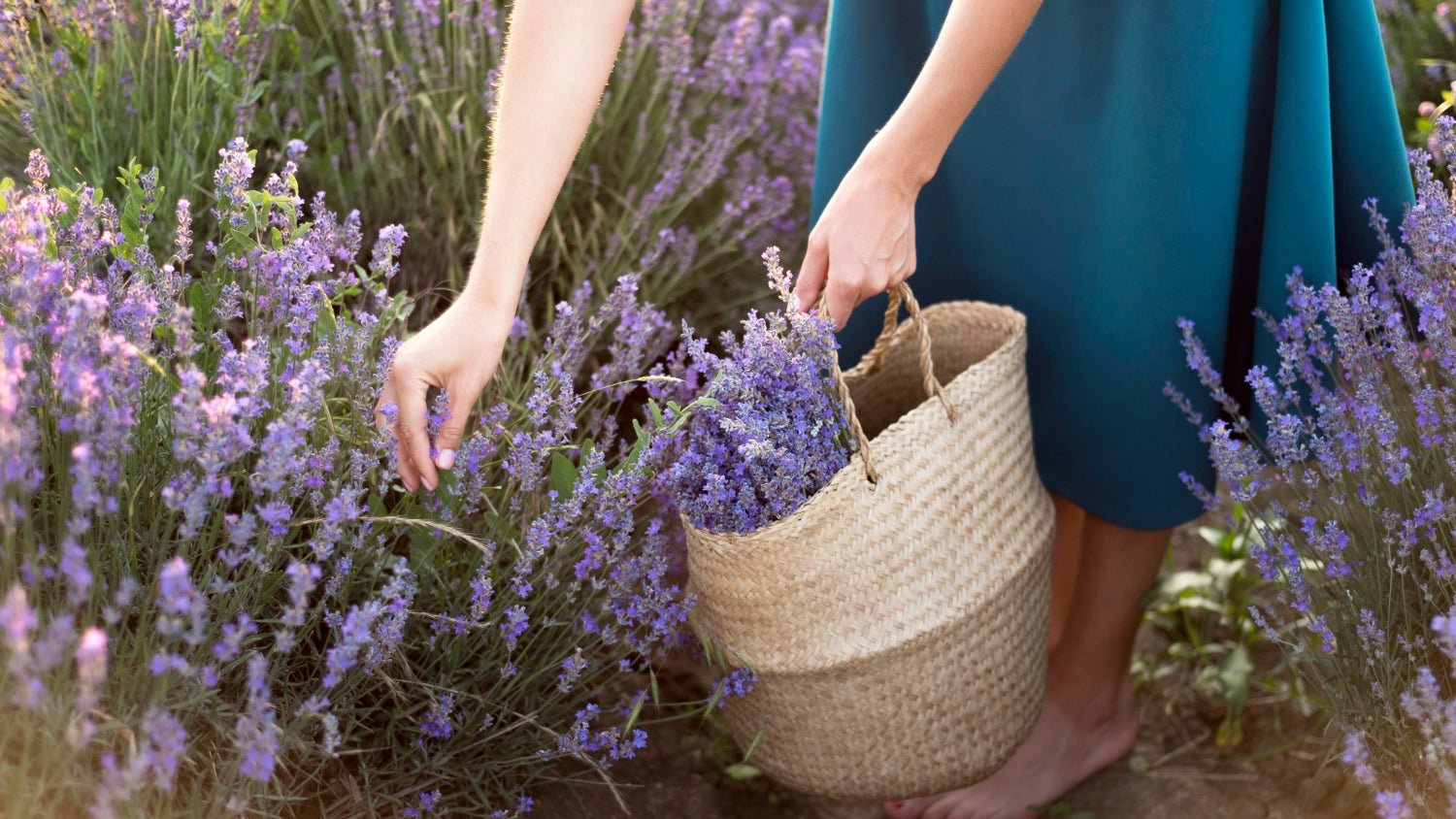
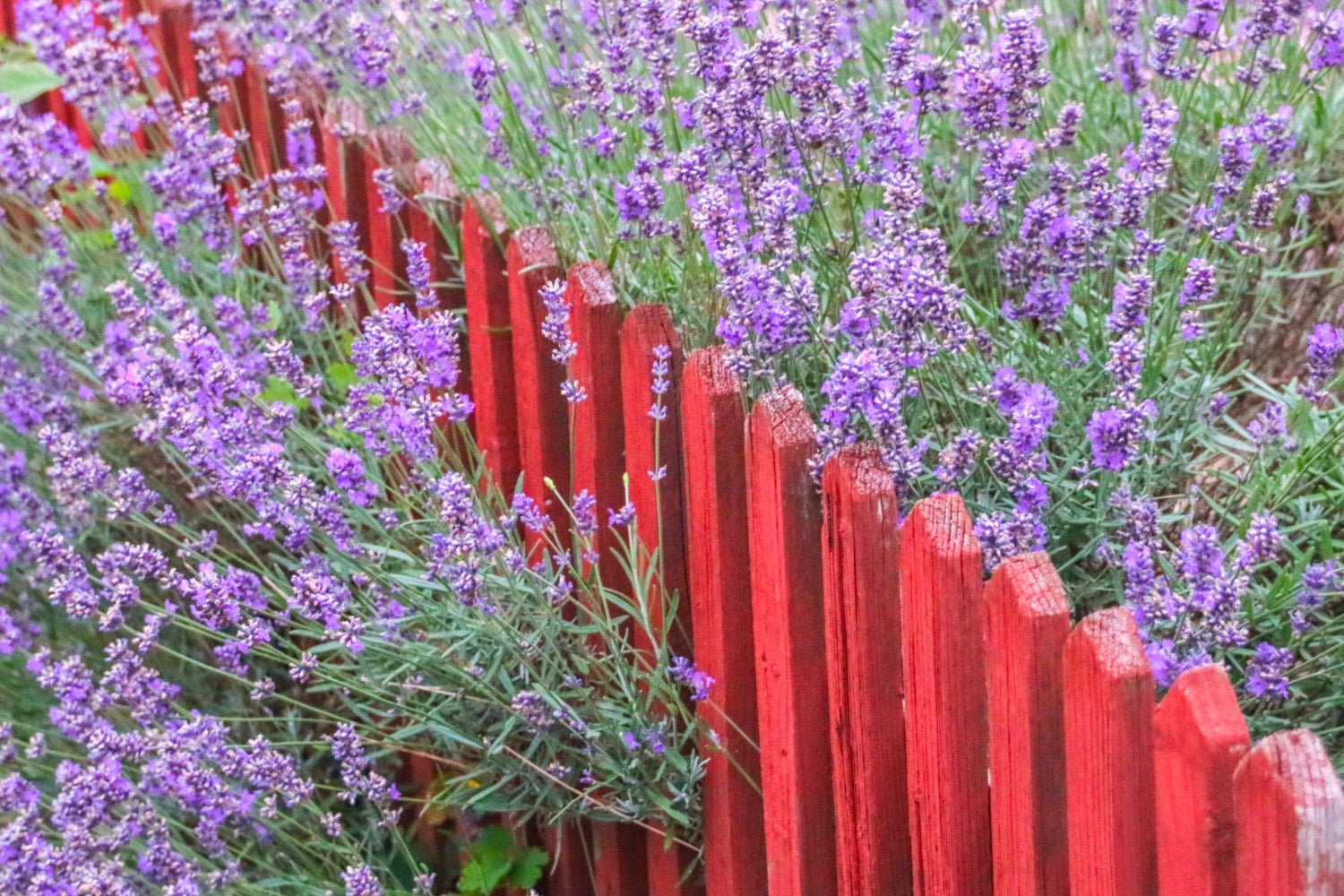
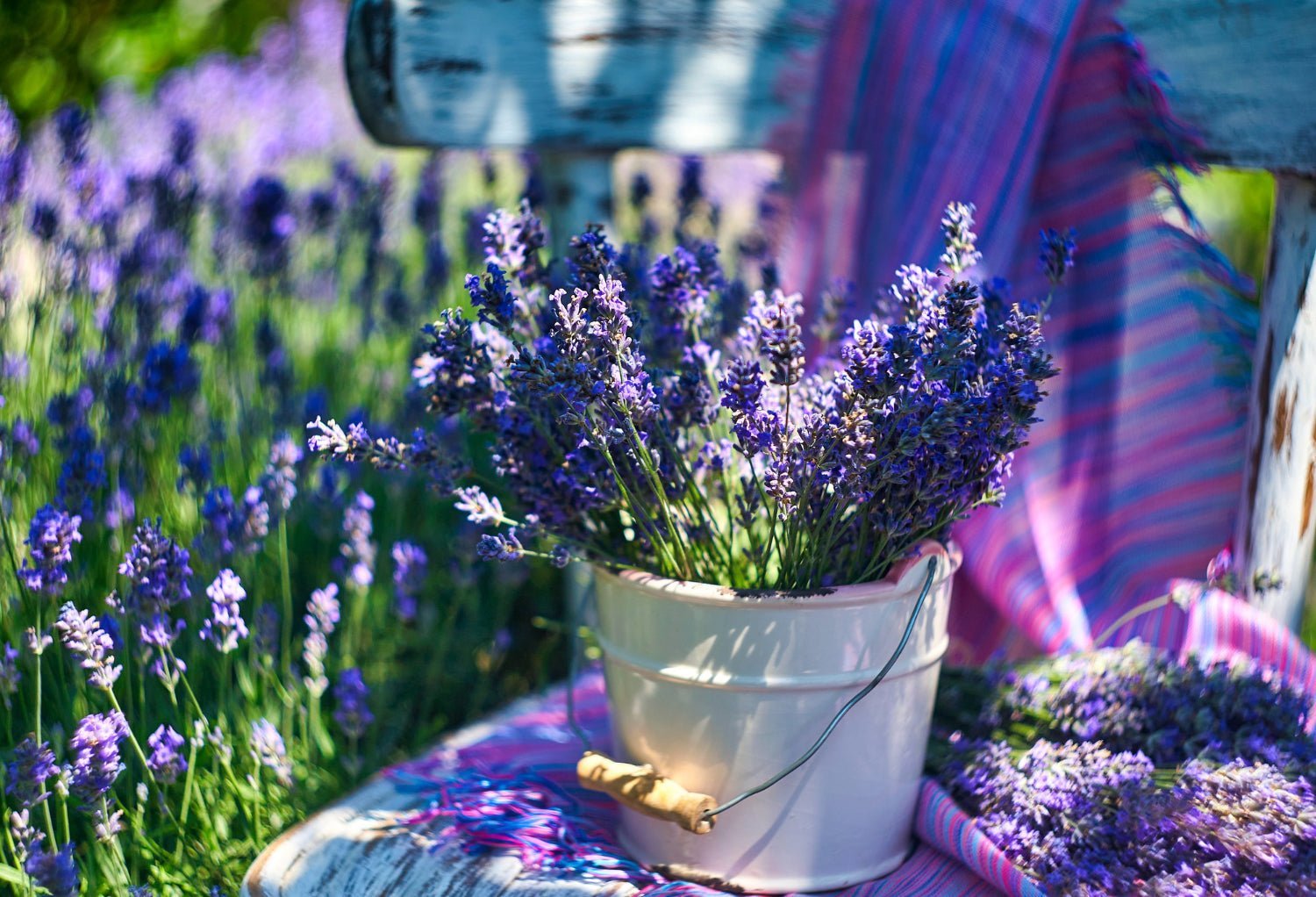
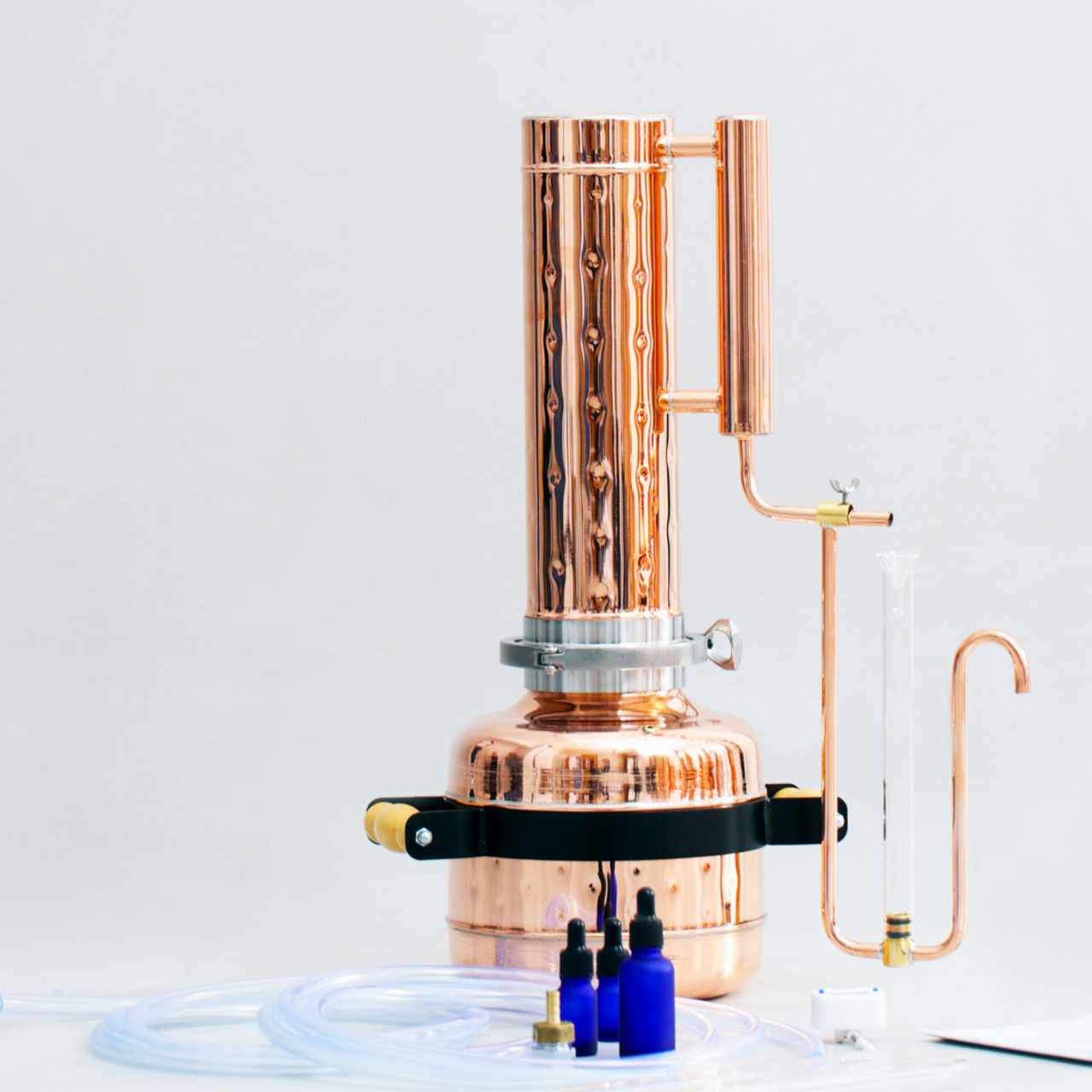
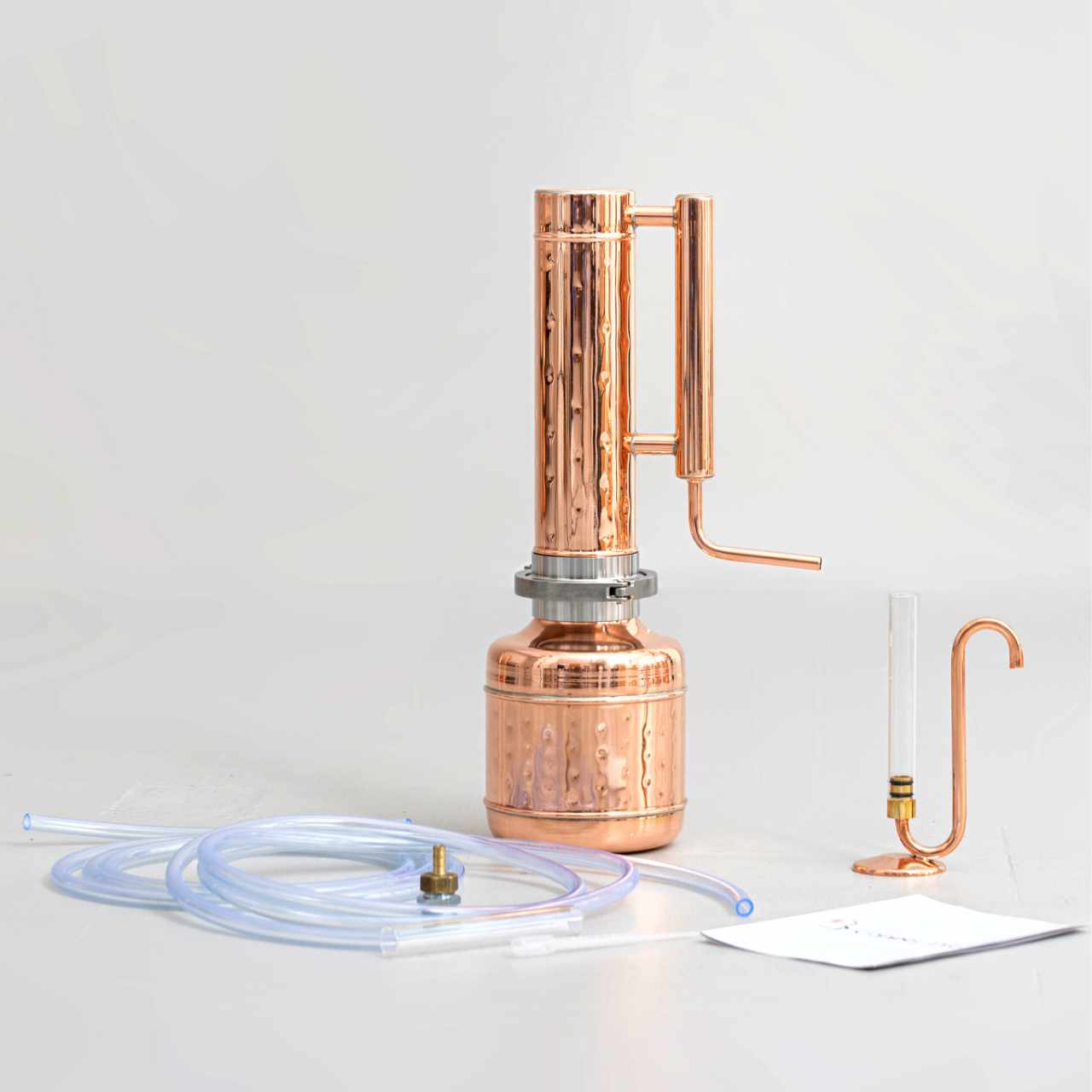
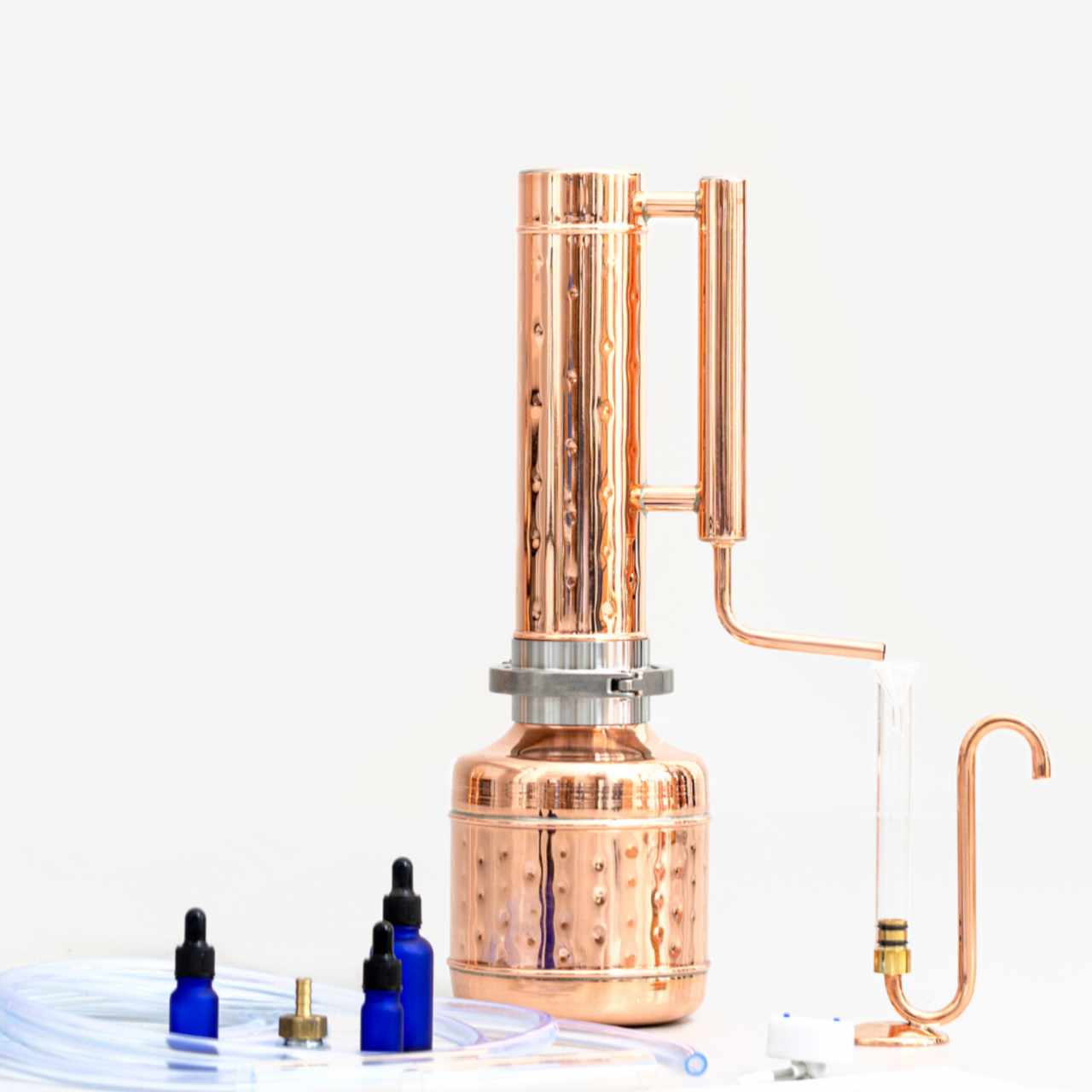
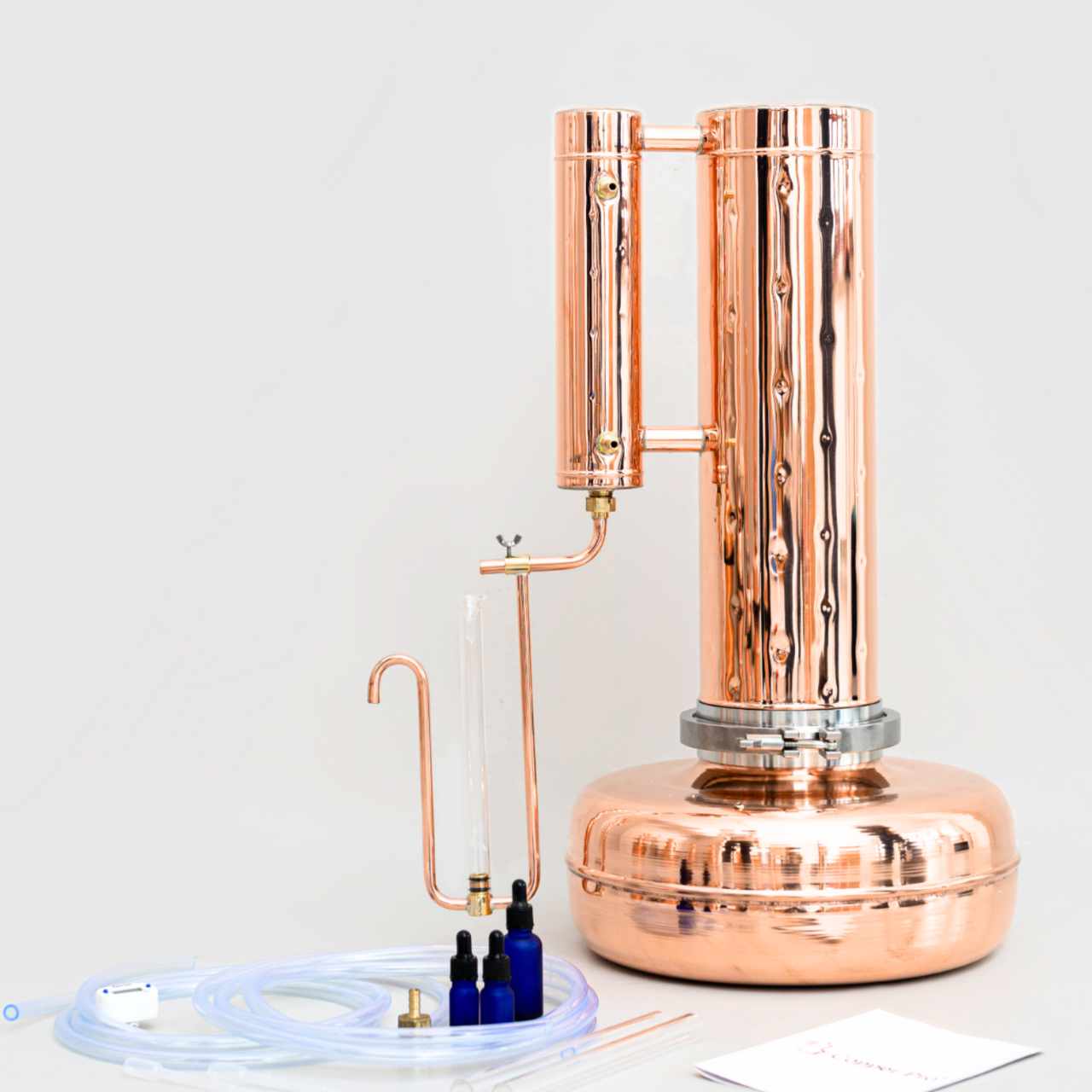
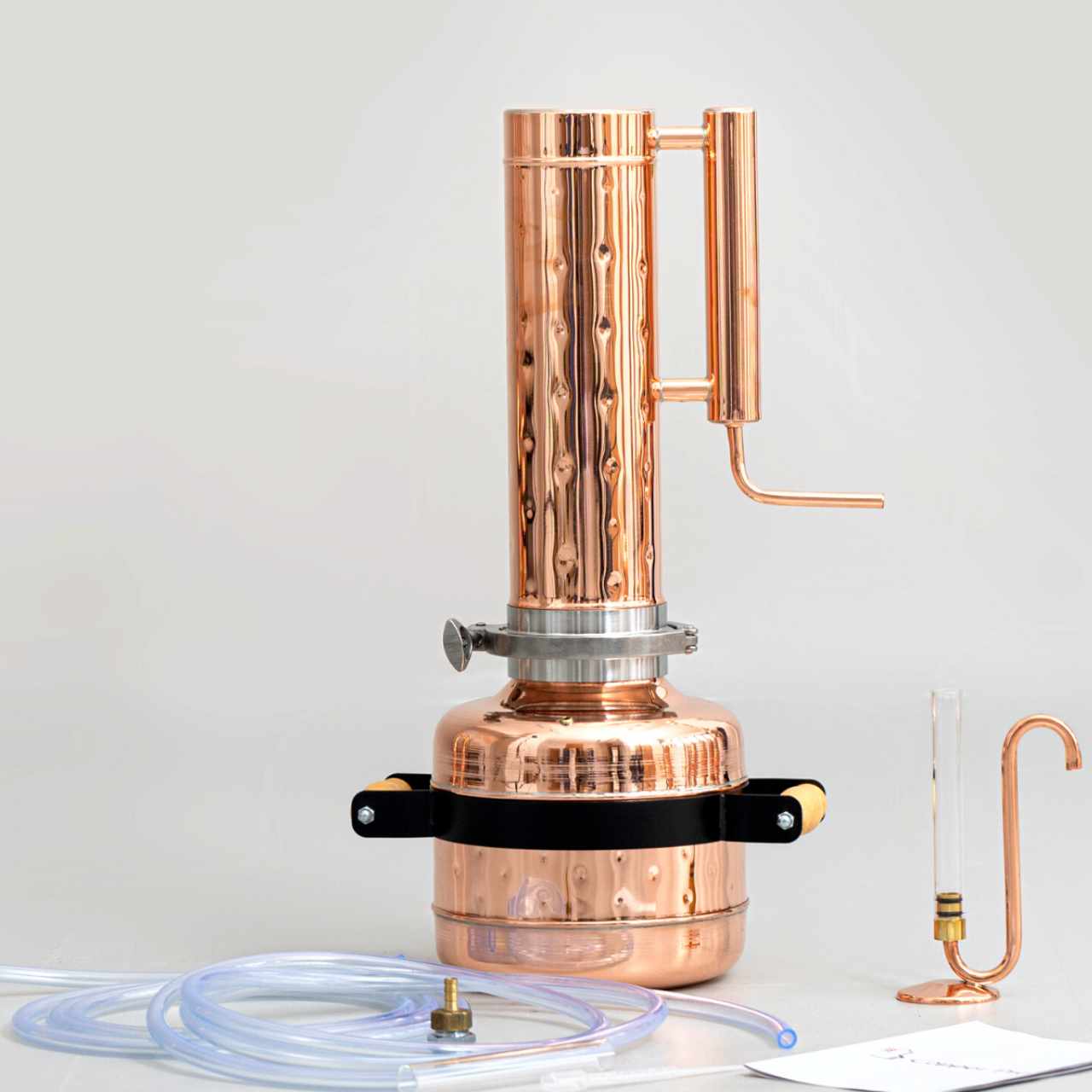
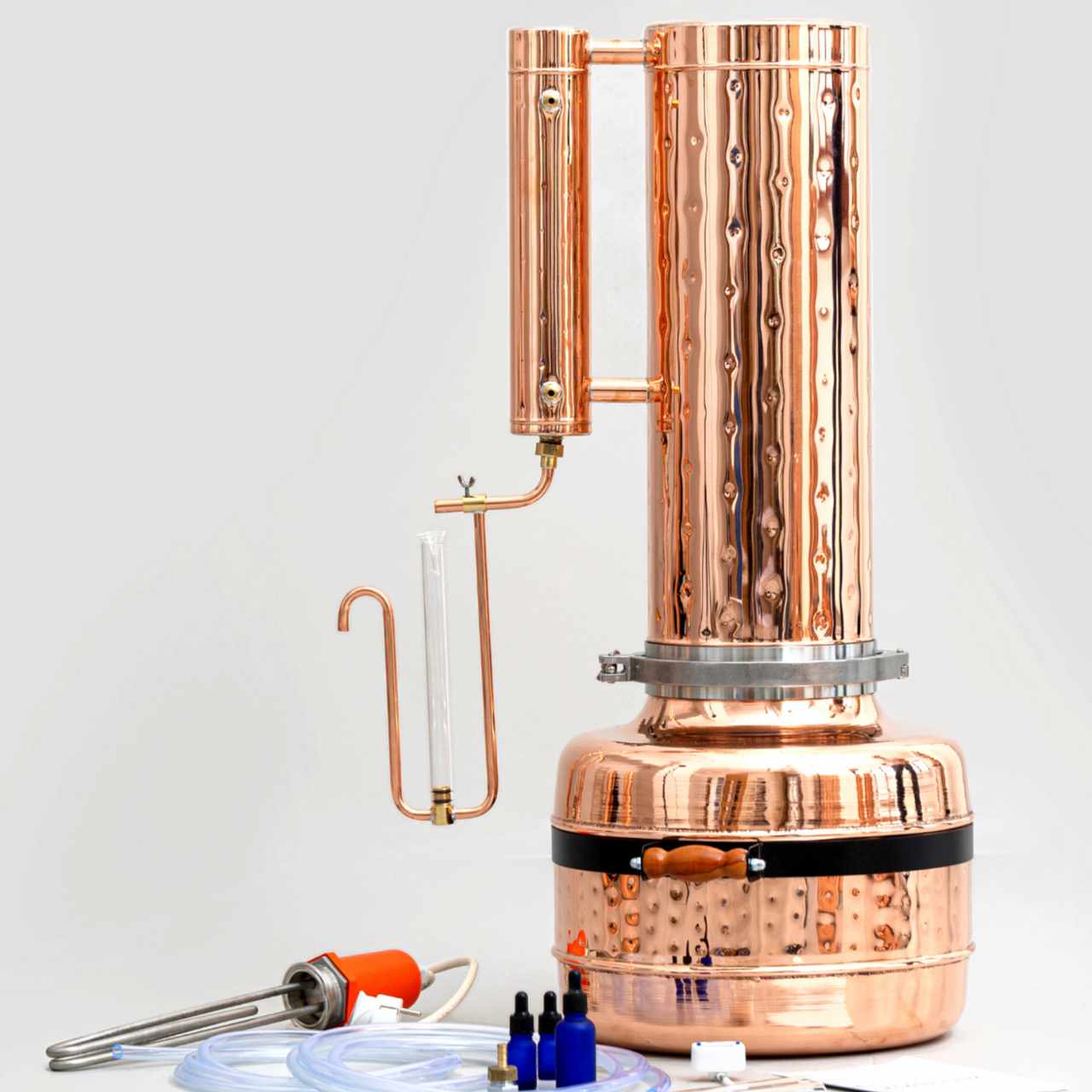
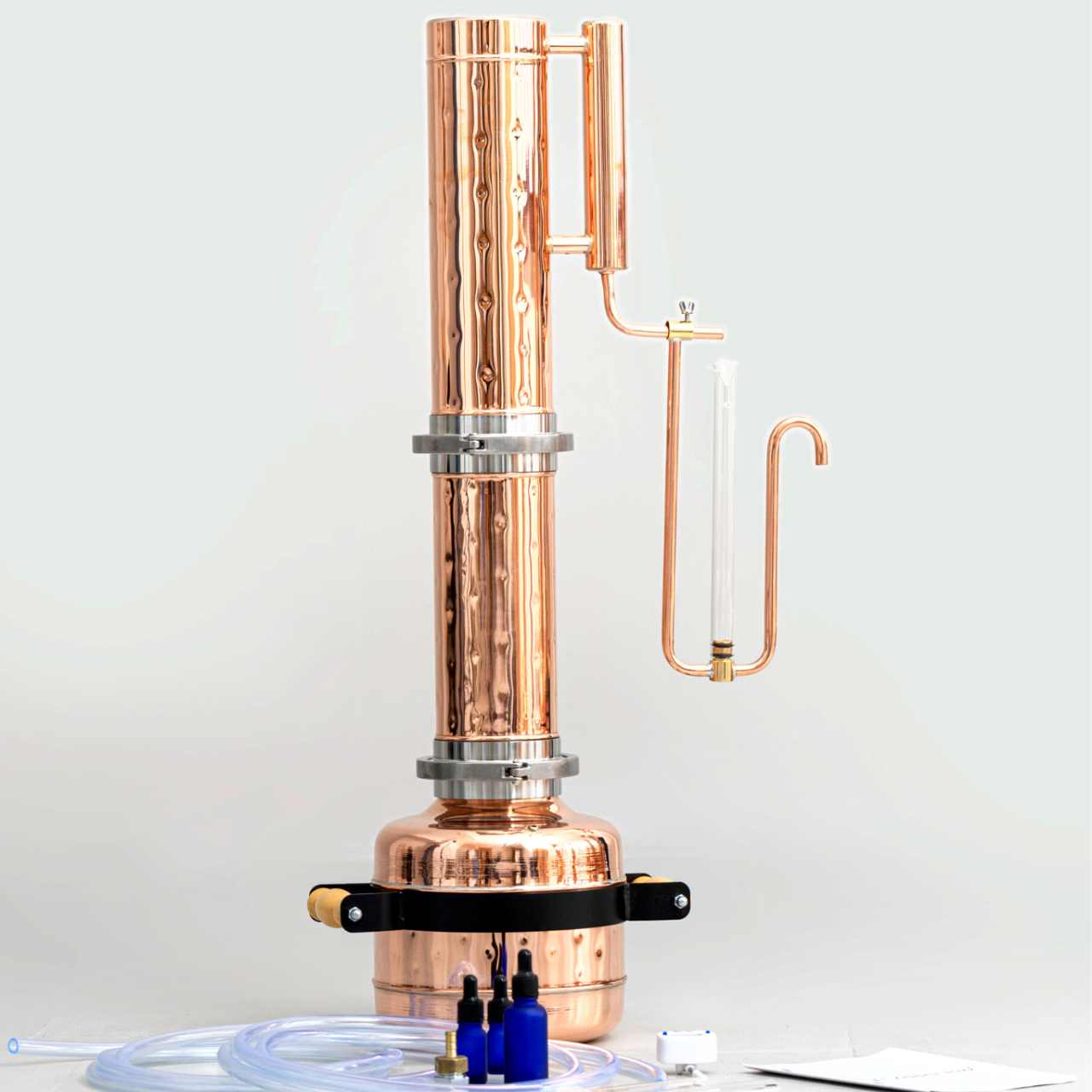
![Essential oil extractor 0.53G (2L) - [Premium Kit] - Copper Pro](http://copper-pro.com/cdn/shop/files/essential-oil-extractor-053g-2l-premium-kit-127057.jpg?crop=center&height=1280&v=1740390471&width=1280)
Comments (0)
Back to Blog Posts